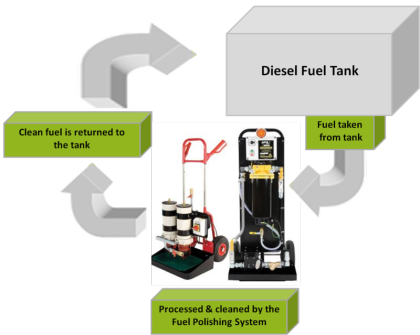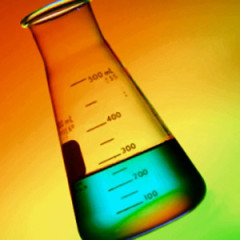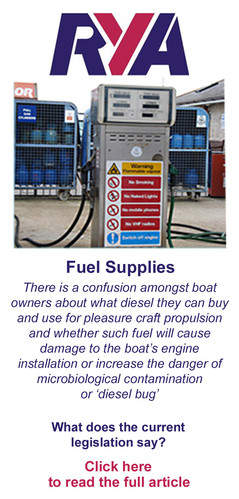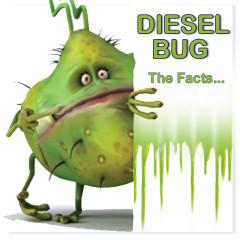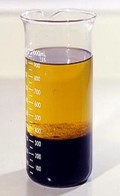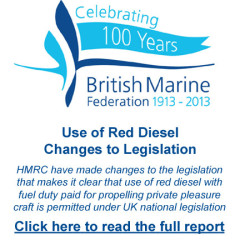
What is Fuel Polishing?
Fuel polishing, or fuel cleaning, is the process of removing water, particulates and contaminates from fuel to ensure that the fuel quality remains in-line with fuel specifications. Ideally, fuel should have an ISO particle code of 18/16/13 and a dissolved water content no greater than 200 parts per million. There should be no free or emulsified water present.
Keeping your diesel fuel clean and free from contamination is fundamental to ensuring the life of the engine in your equipment.
Why it's important to clean your diesel...
Diesel fuel isn’t what it used to be. Environmental restrictions designed to reduce greenhouse emissions have forced the reduction of stabilizing sulfur from diesel fuel. This has made today’s diesel more unstable and susceptible to breakdown. Because it breaks down faster, contamination takes place faster.
There can be noticeable deterioration in 30 to 60 days and the process continues until the fuel becomes unstable.
Why would my fuel become contaminated?
The most common reason for the malfunction of diesel engines in general, and recreational marine diesel engines in particular, is associated with "bad diesel fuel." The things that make the diesel fuel bad generally have nothing to do with the original quality of the fuel, but can come about as a result of the condition of the fuel bought and what happens to the fuel when it gets stored.
Pleasure boats, particularly, sit idle for long periods of time which allows algae time to grow in the tank. Most of this contamination adheres to the wall of the tanks and whilst you might not notice a problem while running the engines at the dock, once the boat is underway and the fuel begins moving around, the contamination tends to start breaking away from the wall of the tank and entering the fuel. This contamination can clog your filters and shut down your engines.
Diesel fuel, when bulk stored for extended periods, can easily become contaminated with any number of foreign bodies from diesel bug, water and dirt to airborne microbes – it is widely recommended that stored diesel fuel is cleaned on a regular basis.
The Four Main Causes of Diesel Contamination....
The longer diesel fuel is stored or sits unused the greater the degree of contamination there will be. But what causes it? There are four main types of diesel fuel contamination...
1. Water Contamination
Water is the most common form of diesel fuel contamination. Water can enter the fuel tank from a number of sources: contaminated fuel delivery, uncovered fill or vent pipe and the most common– simple condensation. If left, water in the tank can lead to microbial growth, saturated filters and tank corrosion.
2. Microbial Growth Contamination
The presence of water provides the medium for microbial growth (bacterial and fungal). Microbes feed on fuel, multiply and excrete waste products which will clog your filters. These by-products are also highly corrosive to metals, gaskets, seals and storage tanks.
3. Particulate Matter Contamination
Particulate matter such as dirt, sand, rust and other metallic particles end up in diesel fuel and fuel storage tanks. These particles are abrasive and, as a result, can lead to wear and tear of the engine parts and ruin fuel injectors.
4. Fuel Breakdown By-Product Contamination
Diesel fuel is organic, so naturally it breaks down on its own. In fact diesel fuel starts to breakdown as soon as it leaves the Refinery. Eventually it produces a sludge that falls to the bottom of the storage tank. If left, this sludge can clog filters and cause carbon deposits in injectors, incomplete combustion and high emission levels.
Contact us
07716 851901
News
Diesel Bug is the term used to describe the bacteria and fungi that can grow within a diesel fuel tank.
It doesn’t grow in every fuel tank – many fuel users may never encounter it - but if conditions are right and it does get established, it can be a very serious problem.
To learn more about diesel bug, how it can occur, the damage it can cause, as well as preventative measures, please visit our FAQ section.
